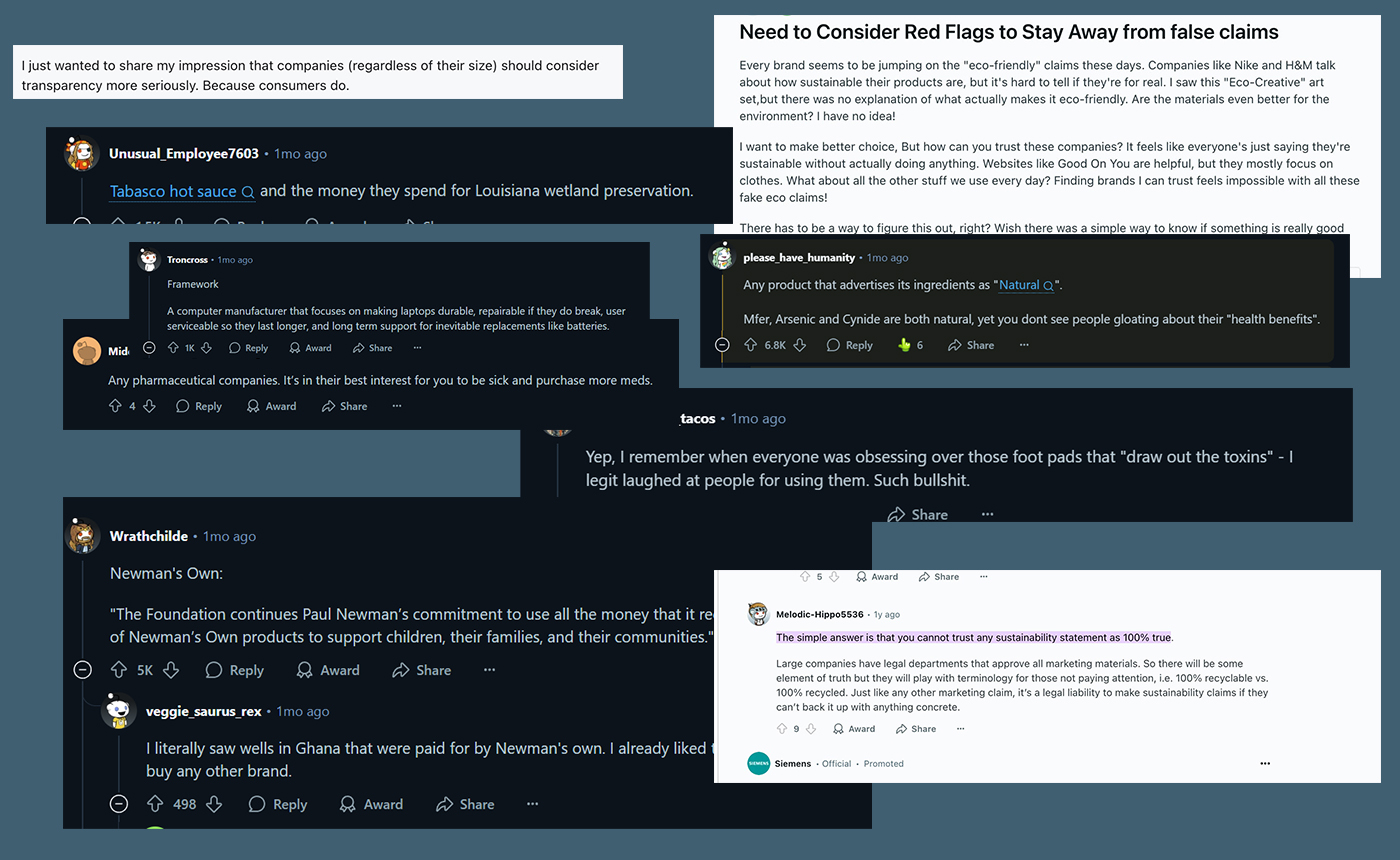August 5, 2025

These days, trust is everything — and more and more people are losing it.
Look around and you’ll see the signs. People are sharing screenshots of ingredient lists and calling out vague claims like “all natural” or “eco-friendly.” They’re swapping product tips in group chats, scanning barcodes with third-party apps that break down what’s really inside that protein shake or shampoo — and they’re skeptical of anything that feels performative.
It’s not just greenwashing. It’s everything-washing.
“Natural?” Arsenic is natural.
“Sustainable?” According to whom?
“Tested for quality?” How? By who?
.png)
We’re seeing a massive shift in how people evaluate products.
It’s not just what a product claims anymore — it’s what others say about it that counts.
.png)
And data backs it up:
.png)
Walk through any aisle and you’ll see badges — “cruelty free,” “carbon neutral,” “non-toxic,” “certified this,” “approved that.” But how many actually tell you what that means?
This growing layer of symbols and stickers is often a defense mechanism. Brands are scrambling to say, “Look, we’re good!” — but they rarely show the receipts. That vacuum is what gave rise to all these third-party scanning apps and watchdogs.
But here’s the thing: apps like that exist because trust is broken.
They’re useful, yes — but they’re band-aids. Skepticism has grown so much that we now rely on external tools to fact-check a box of cereal.
Because if a brand is doing the right thing — sourcing sustainably, treating people well, investing in real impact — they should be able to show it. Not just slap on a badge. Show it in a way that sticks — and spreads.
At PocketSeed, we built the company around a simple belief:
👉 Doing good should be good for business.
We believe that when brands see the value in doing things right — and can prove it in ways that people actually trust — it creates a ripple effect that can drive major change. Verified impact becomes a competitive edge, not just a compliance box.
As Seth Godin explains in Unleashing the Idea Virus and Purple Cow, the most powerful ideas are the ones worth talking about — remarkable, meaningful, and easy to share. And the people who spread them? He calls them “sneezers” — the fans who tell your story for you.
“Ideas that spread, win.” — Seth Godin
That’s the kind of brand value that doesn’t fade — it compounds.
But this isn’t just about marketing or momentum. There’s also a major regulatory shift underway. New rules like the EU Deforestation Regulation (EUDR) and Digital Product Passports (DPPs) are setting the stage for a more transparent, accountable global marketplace. Brands that want to sell in Europe and other major markets will have to prove where their products come from, what’s in them, and how they were made.
.png)
We’re here to support that future — by helping businesses not only comply, but thrive in this new era of trust.
When you build transparency into the core of your product, it’s no longer a risk — it’s an asset.
We’re using tech (like digital credentials and blockchain) to make claims tamper-proof and auditable, but just as importantly, we’re making them human.
When someone believes in a product, they tell their friends. They become what Seth Godin calls “Sneezers” — the kind of people who spread ideas like a virus because they believe in them deeply.
That’s the real win.
Transparency done right builds brand value, turns customers into advocates, and shifts the conversation from "prove it" to "tell me more."
.png)
Talk to our team today about how PocketSeed can work for your brand.